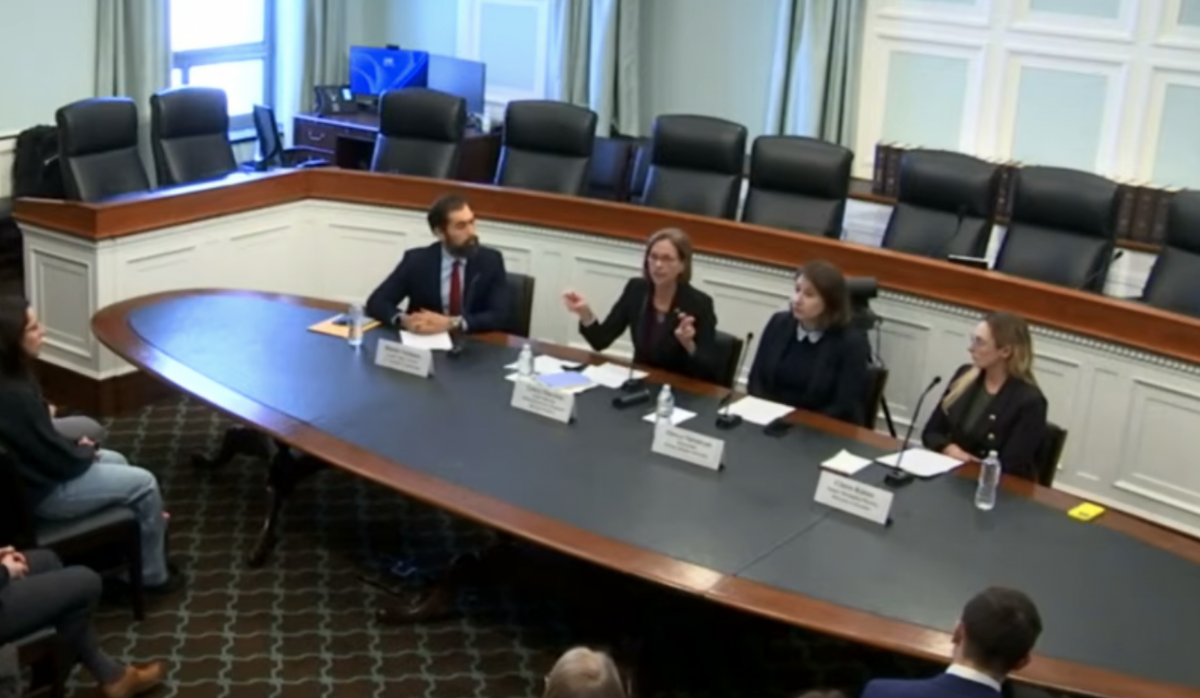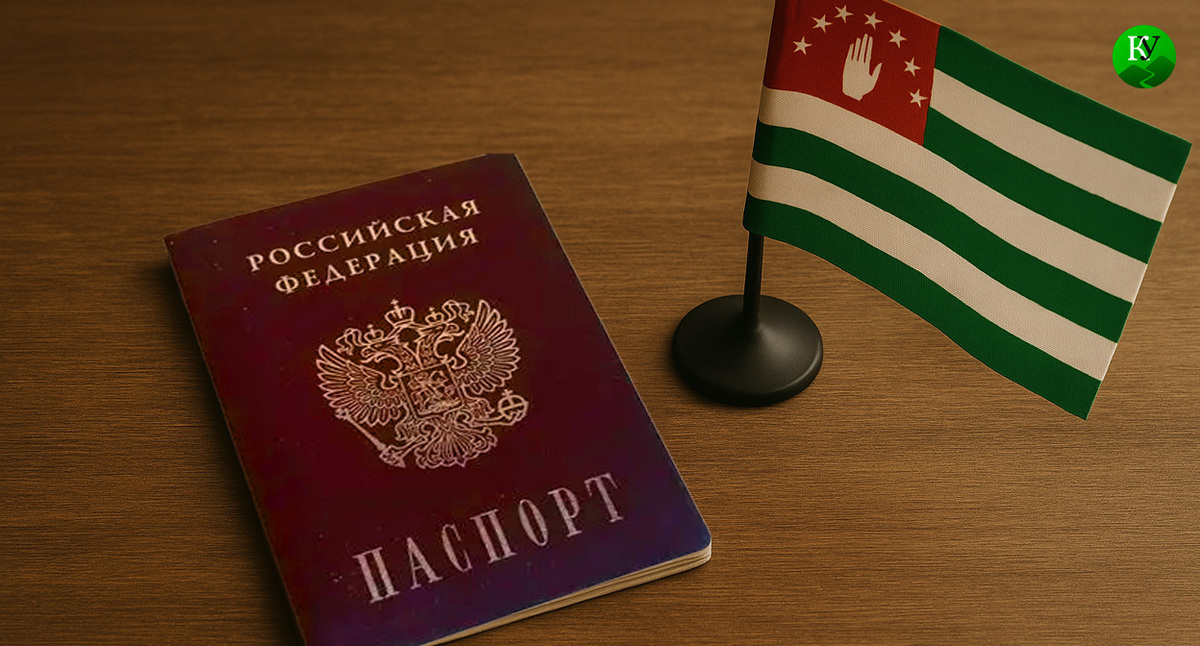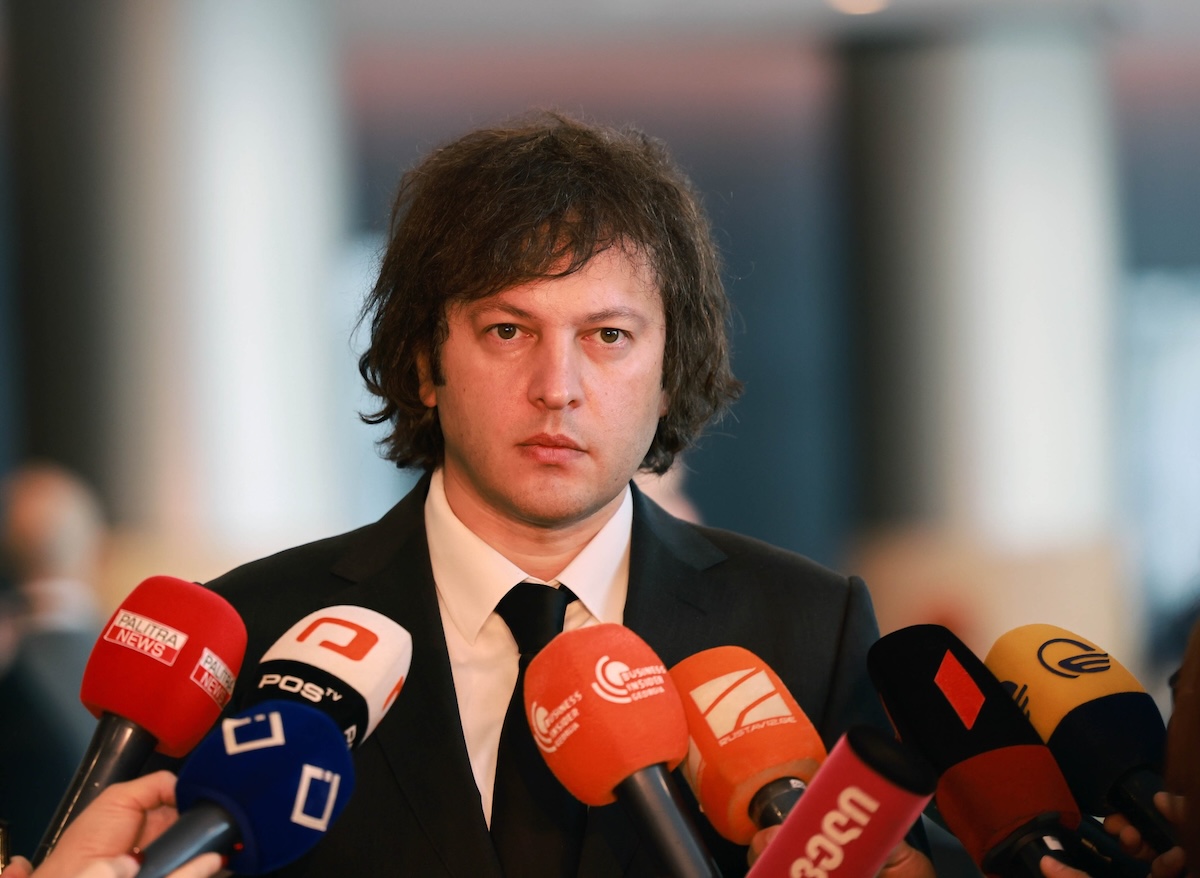Op-ed: Misha’s Ukrainian breakthrough. What next?
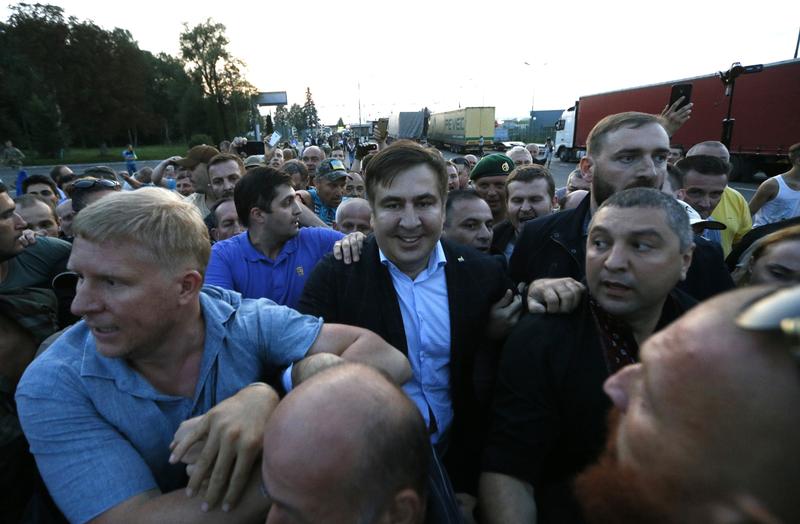
When President Petro Poroshenko of Ukraine deprived Mikheil Saakashvili, his former college friend and later political ally, of Ukrainian citizenship (while the latter was on a trip to the United States), he gave him a blessing in disguise. After a failed stint as the governor of Odessa, Saakashvili’s stock in Ukraine’s politics was in decline. Due to his closeness with Poroshenko or other reasons such as quarreling with many potential allies, his popularity ratings suffered. His party, the Movement of New Forces, was trailing in the polls, and it proved rather difficult to build up a strong party organization throughout Ukraine.
Being deprived of citizenship with a dubious legal justification, Saakashvili could claim a high moral ground. He could present himself as a persecuted opposition politician, and a really major one at that: otherwise, why would Poroshenko fear him so much?
Somebody in his shoes might take up an offer of citizenship from a friendly government, settle down and start giving interviews to media sources from different countries, until, hopefully, the political weather in Georgia or Ukraine changed in his favor. But this is not for Misha: He has to be in the center of the action. He decided to take advantage of Poroshenko’s political gift in a different way.
On 10 September, a political performance on the Polish-Ukrainian border went brilliantly for him and very badly for the Ukrainian government. Important Ukrainian opposition figures came to stand by his side, including Yulia Timoshenko, whose party, Batkivschina, has the highest ratings of all Ukrainian parties at this point, and Andryi Sadovyi, the mayor of Lviv and also one of the most popular politicians of the land.
This meant that the center of gravity of the opposition moved to the place where Saakashvili was. Loyal supporters gathered on the Ukrainian side of the border. When the Ukrainian authorities prohibited the train that Saakashvili and his associates boarded in order to move forward, it showed Poroshenko as mean, small, and scared – Misha proved his point once again. After Saakashvili and his associates left the train and went to the border to cross it by foot, they were said it was mined – which turned out to be a pathetic lie.
Then came the climax: As Saakashvili was in the neutral zone between the two countries, his supporters forced their way through the armed barrier, surrounded Misha, and escorted him to Ukraine. This showed Poroshenko (and the state under his leadership) to be weak and confused; Saakashvili, on the other hand, was a triumphant man of the people, a genuine and brave leader who can take risks and win.
The net result is that he is not just back in the game now, but at the very center of Ukrainian politics. On the other hand, he also reinvigorated and inspired his supporters in Georgia, who saw Misha at his best – winning something.
However, Misha won the battle, but not the war. Poroshenko can also try to take advantage of the border episode. From his position, what happened was a blatant and grave violation of law and order by a mob incited by an extremist leader. Government loyalists have already started to compare this with Russian action in eastern Ukraine. So, he is now entitled to take legal action against Saakashvili and his supporters who forced their way into Ukraine, and this time the legal ground for that is real.
Moreover, he can extradite him to Georgia. If this option was earlier considered to be rather theoretical, it is now discussed more broadly. The Georgian government demands his extradition, but apparently hopes this will never happen. We learned this from a taped conversation between a Russian prankster and Georgia’s interior minister, who thought he was talking with his Ukrainian counterpart – but we could have guessed that anyway.
However, if Poroshenko decides to arrest and extradite Saakashvili, the Georgian government will not have any other option but to take him and put him into jail, probably provoking some protests and unrest from his supporters, and further western criticism for selective justice.
But will he? The gamble with Saakashvili and his opposition supporters is that the government will not dare to, as the very attempt of using force may cause even stronger protests, accusations of authoritarianism from the West, and generally destabilize the situation.
Now that a serious opposition center appears to be crystallizing around Saakashvili, this is something to reckon with. Yes, the integrity of the state border was violated, but before that Poroshenko in his own turn behaved very dishonorably indeed, and this may undermine the legitimacy of any possible punitive actions.
If the situation was uncertain when Saakashvili announced his intention to cross the border, the level of uncertainty is even higher today. The only thing we know for sure is that the stakes have gotten much higher. And both parties have substantive weaknesses.
Poroshenko looks authoritarian and weak at the same time. Saakashvili’s move on Sunday can also be seen as an act of desperation. Like a losing poker player, he he risked it all and won the round, but his position is still shaky. He may count on the mounting protest against the corrupt and ineffective rule of Poroshenko, because this may give him some level of security.
But so far it does not look like Ukrainians intend to have another Maidan. The government can use the message that helped Georgian Dream win the 2016 Parliamentary elections: “Okay, we may be a weak and feckless government, but Saakashvili means turmoil. Do you really want this?” It worked for Georgians, but whether it will work for Ukrainians I cannot say.
However, is there a way for Saakashvili to return to normal parliamentary politics? There are too many questions in the air.
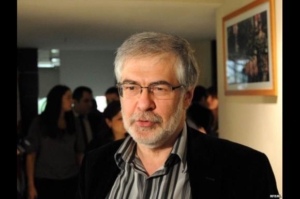
Ghia Nodia is a Georgian political analyst who served as the Minister of Education and Science in the Cabinet of Georgia from 31 January 2008 until 10 December 2008. Since 1992, he has chaired the Tbilisi-based think-tank Caucasus Institute for Peace, Democracy and Development.
* Toponyms and terminology used in the article, as well as views, opinions and strategies they contain, do not necessarily reflect the opinions of JAMnews or any of employees thereof. JAMnews reserves the right to delete comments it considers to be offensive, inflammatory, threatening or otherwise ethically unacceptable












